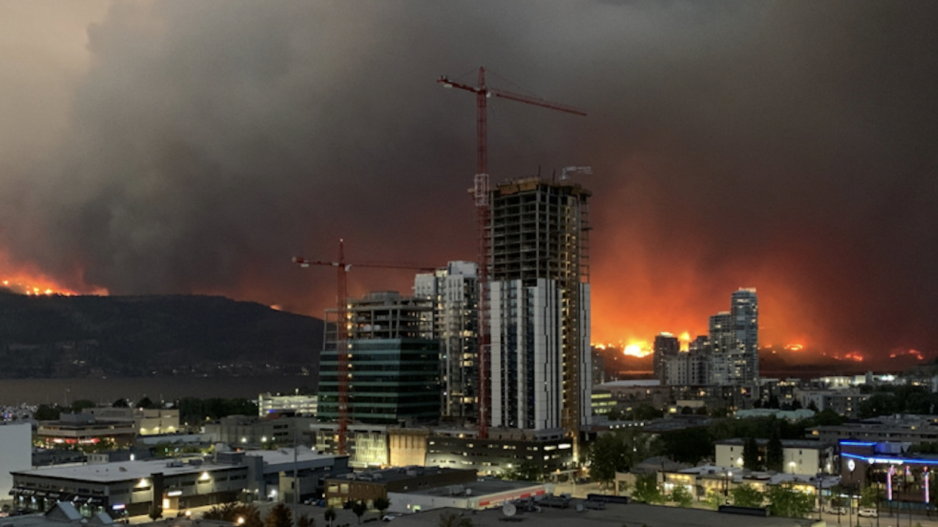For decades, British Columbians have endured discussions about “the big one.”
When Research Co. and Glacier Media asked British Columbians last month about emergency preparedness, just over three in four (76 per cent) think it is “very likely” or “moderately likely” that an earthquake strong enough to damage buildings will occur in the province in the next 50 years.
The results are consistent with our 2021 survey, when 75 per cent felt the same way.
The past few years have provided cautionary tales about the way the world deals with natural disasters. Recent earthquakes in Japan, New Zealand, Turkey and Morocco outlined huge differences in the way governments react and communities act. British Columbia has seen residents pulling through in events such as floods and wildfires.
At this time, the level of concern from British Columbians about being personally affected by specific emergencies remains particularly high for two events: A fire (81 per cent, up one point) and an earthquake (76 per cent, up four points).
At least three in five of the province’s residents are also worried about having to personally deal with high winds (66 per cent, up eight points), intense rainfall (65 per cent, up 12 points), a flood (63 per cent, up 12 points) and heavy snowfall (60 per cent, up 13 points). Four other events have a lower rating: A toxic spill (56 per cent, up nine points), a tsunami (51 per cent, up nine points), a landslide (50 per cent, up 11 points) and a terrorist attack (46 per cent, unchanged).
The increases in the level of concern for eight of the 10 events we ask about are noteworthy.
As expected, some regions gravitate towards the dangers that they perceive to be closer to home. Worries about heavy snowfall reach 77 per cent in Northern B.C., floods are at 75 per cent in the Fraser Valley and a tsunami checks in at 58 per cent in Vancouver Island. Still, on fires and earthquakes, the views of British Columbians are practically universal.
Natural disasters test the way in which governments operate. Implementing policies that deal with the aftermath of an emergency is very different from designing a proper framework before our lives are disrupted. When British Columbians are asked if they have confidence in the ability of specific entities to successfully deal with an emergency, some administrations fare better than others.
In our survey, more than half of British Columbians think the provincial government (57 per cent, down nine points), their municipal government (56 per cent, down seven points) and their neighbours (55 per cent) are equipped to manage a crisis. The proportion is lower for the federal government (49 per cent, down 10 points).
While we still see most residents expressing confidence in the provincial government to deal with an emergency, the proportion has dropped by nine points since 2021. There is an additional layer of analysis. Trust is highest in the Fraser Valley (66 per cent), followed by Southern .B.C (63 per cent), Vancouver Island (59 per cent), Metro Vancouver (54 per cent) and Northern BC (49 per cent).
Overall, 16 per cent of residents of Southern B.C. – an area that grappled with wildfire-related alerts and evacuation orders this summer – believe the provincial government “definitely” cannot be trusted in an emergency.
As concerns about emergencies rise, and confidence in governments falters, British Columbians are starting to do more to ensure that they are ready for an unexpected event.
Across the province, 41 per cent of residents say they have purchased or prepared an emergency kit with supplies they might need in case of an emergency (up three points), 31 per cent have prepared an emergency plan that includes how to get in touch with family or friends in case of an emergency (up three points) and 24 per cent have established a meeting place with family or friends in case of an emergency (up two points). The proportion of British Columbians who have not done any of these three actions fell from 45 per cent in 2021 to 40 per cent this year.
We are a couple of weeks away from the Great Shake Out Earthquake Drills, which are scheduled for October 19 at 10:19 am across British Columbia.
The province’s residents continue to expect “the big one” and are starting to behave differently in case an emergency complicates both sustenance and communication. The needle is moving slowly on emergency preparedness, but it is moving in the correct direction.
Mario Canseco is president of Research Co.
Results are based on an online study conducted from Sept. 17-19, 2023, among 800 adults in British Columbia. The data has been statistically weighted according to Canadian census figures for age, gender and region in British Columbia. The margin of error – which measures sample variability – is plus or minus 3.5 percentage points, 19 times out of 20.




